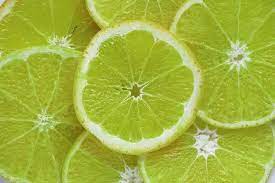
Firstly, introducing Auscrops, a high-tech market vending company bridging farmers and customers together through market vendors. Click here to find out more about Why Lemons Are Alkaline as well fruit and vegetable offers.
Why Lemons Are Alkaline
A common misconception about our favorite zesty fruit involves its pH level. You’d think, given its tangy nature, it’s acidic. Interestingly, that’s not the case. So, let’s unravel this peculiar phenomenon.
The Citrus Contradiction
First, let’s get our definitions straight. Acidic substances have a pH level below 7, while alkaline substances register above that mark. When tested, the juice of our yellow fruit shows a pH of about 2 – decidedly acidic. So, where does this confusion stem from?
The Metabolic Mystery
It’s all about the journey within our bodies. Once ingested, the journey our yellow fruit takes in our system is surprising. Despite its initial acidic nature, it produces alkaline byproducts during digestion.
The Digestive Dance
After the fruit is eaten, our stomach works to break it down. As the body metabolizes the fruit, the process results in byproducts. For our tangy hero, these are predominantly alkaline – minerals such as potassium, magnesium, and sodium.
The Alkaline Aftermath
As these minerals enter the bloodstream, they raise its pH level, making it more alkaline. So, while the fruit starts its journey as an acid, it morphs into an alkaline force post-digestion. The impact on the body is thus a net alkaline effect, leading to the widespread belief in its alkaline nature.
The Health Hypothesis
Understanding this transformation is crucial due to the potential health benefits. A diet leaning towards alkalinity might assist in maintaining a healthy pH balance in the body. It can contribute to improved energy levels, better digestion, and overall wellness.
The Dietary Detail
Including more alkaline-forming foods, like our yellow fruit, can be an effective strategy. The citric acid in the fruit has a strong, acidic taste, but don’t let that fool you! It’s what happens inside your body that counts.
A Final Food for Thought
To conclude, the alkaline nature of our citrus friend isn’t as straightforward as it seems. The process hinges on the metabolic transformation that takes place within our bodies. Therefore, don’t judge a fruit by its juice! These yellow globes might taste acidic, but they transform into alkaline heroes in our system, potentially contributing to better health.
Next time you enjoy this tangy fruit, remember – its impact goes far beyond its zesty flavor. Embrace the hidden alkalinity and let it contribute to a balanced, healthy diet.
Click here to read similar articles.
 Français
Français 











